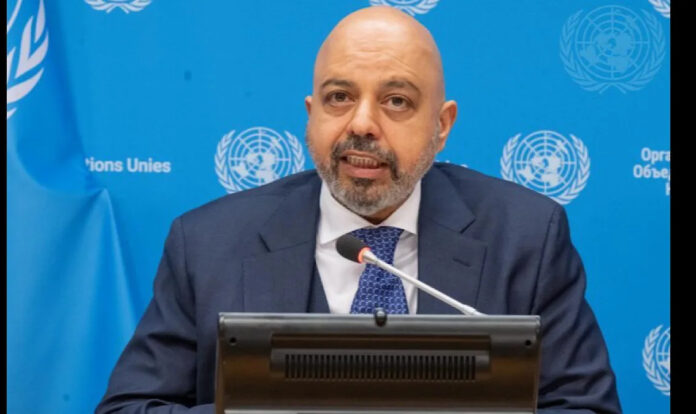AGENCY
NEW york, Apr 18
“As a main player on the world stage,” India will surely be a contender if the size of the UN Security Council is raised to between 21 and 27 members, according to the Co-chair of the reform negotiations Tareq M.A.M. AlBanai. He said on Thursday, “The goal of this reformed Council must be (that it is) representative and obviously, India is a main player on the world stage today.” “Surely if the decision is made that expansion of the council goes anywhere from 21 to 27 members, then surely India will be a contender in that,” he added.
But he also said that “will be subject to the decision of the wider membership”. AlBanai pointed out that the UN has “a membership of 193 countries” and “the consideration is (for it to be) representative for everybody and the whole membership of the United Nations”.
He recalled his visit to India last year with former Austrian Ambassador Alexander Marschik, who was then the co-chair of the negotiation process, and said he had “conversations there at the highest level”. AlBanai, the permanent representative of Kuwait, heads the reform process known formally as Intergovernmental Negoti-ations (IGN) and briefed reporters on the progress made. On an issue that India has been pressing — the adoption of a negotiating text for the IGN — he was confident that it would be adopted. A small group of countries known as ‘Uniting for Consensus’, which includes Pakistan and is led by Italy, opposes expanding permanent membership of the Council and prevents the adoption of a negotiating text to delay the reforms indefinitely. AlBanai said, “Obviously, this process will lead us to text-based negotiations, because I think that is the least complicated part of this process.” “The most complicated part is to have consensus on what that text contains, and then putting it on paper is not really going to be that difficult to be honest with you,” he said.
AlBanai did not sound very hopeful that the reform would be completed soon. “If I were to say we can finish this in a year, I would be misleading you,” he said, because of the complexity of reforms “that will be effective for the next 100 years”. While AlBanai said that 2030 — five years from now – “is a realistic target,” he added the caveat, “But I can’t guarantee it by 2030 or any other year for that matter.”
Speaking of the difficulties in the way of the reform process, he said it “is complex and requires patience, because whatever decisions we make, the process of amending the charter.
, if it requires amending the charter, is very complicated in and of itself”.
“And the process needs to last with us for the next 100 years, at least, so that it can adapt to every possibility that the United Nations and the World faces,” he said.
“So, let’s hope that this process continues on a positive trajectory, which it has been for the last few years,” he added.
He said that an open “structured dialogue” without “artificial deadlines or barriers” will help bring about consensus on reforms.



























